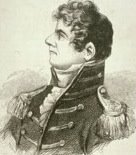The Bishop of New York on the Episcopal Church and the Anglican Communion
The Right Reverend Mark Sisk, Bishop of New York, at the Convention of the Diocese of New York:
Unfortunately, in my opinion at least, when the Church gathered in Convention the desire to reach a common understanding, though prevalent, was by no means universal. What makes that fact so potent is the breadth, size and complexity of General Convention. Doing convention business consists of dealing with two sets of committees presenting matters to roughly 1200 official deputies sitting in two houses but meeting for a very limited amount of time; it requires only a dedicated handful of knowledgeable people to really gum up the works. And those folks were there, and clearly well prepared. There were determined efforts to use cleverly worded resolutions to draw lines between people and to drive them into warring camps. There were attempts to obscure the issues or assert that there were issues where none existed. Perhaps the most dramatic example of this distortion was the frequently repeated claim that the Windsor Report called on the Episcopal Church to renounce the consecration of Gene Robinson. The simple and irrefutable fact is the Windsor Report simply never made such a request, nor was it made by the Primates nor was it made by the Anglican Consultative Council; persistent claims that it did so were misunderstandings at best, if not an outright distortions at worst. Despite the facts the assertion that such a request had been made was repeated with such determination and singleness of voice that one media outlet after the other assumed that it was true.
The primary strategy however, appears to have been to slow the cumbersome Convention process to the point of paralysis, and then claim to international forums that the Episcopal Church was uninterested in listening to our brothers and sisters around the world. I am pleased to say that at the end of the day this strategy failed. A difficult but not uncontroversial accommodation was reached.
Personally I have few illusions as to what might be achieved by this temporary accommodation. But I am pleased that our Church has, without in any way repudiating its previous actions or its pastoral care and support of all its members, gay and lesbian persons prominent among them, said that it wants to continue to be in conversation with those who disagree with us. I know full well that there are those on all sides of these issues who are tired of dialogue and have given up on its potential.
I have not. I have seen too much evidence of the fruit of dialogue.
Read his full address at the diocesan website.


0 Comments:
Post a Comment
<< Home